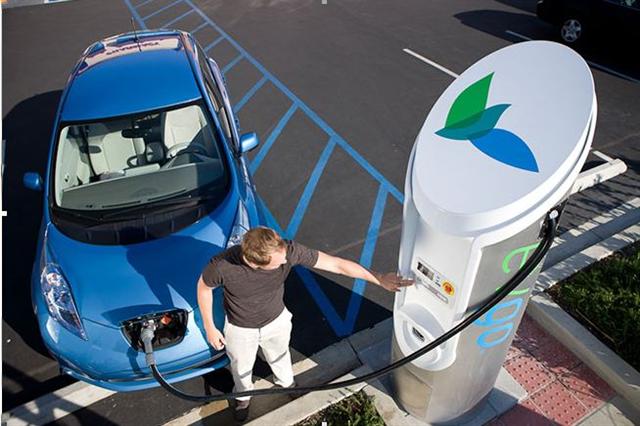It's a given that the costs of batteries for electric cars will fall in the coming years.
The industry hotly debates how much and how fast--after interviewing numerous auto and battery engineers, our figure is around 7 percent a year--but by 2020 or so, costs may be as low as half what they were in 2011 when the Nissan Leaf and Chevy Volt launched.
The large-volume makers--BMW, GM, Nissan, and Tesla today--will benefit most from these economies of scale, but even lower-volume and compliance-car makers will find their costs falling.
![2013 Tesla Model S at Supercharger station in Woodburn, Oregon, Nov 2013 [photo: George Parrott] 2013 Tesla Model S at Supercharger station in Woodburn, Oregon, Nov 2013 [photo: George Parrott]](https://images.hgmsites.net/lrg/2013-tesla-model-s-at-tk-nov-2013-photo-george-parrott_100449151_l.jpg)
2013 Tesla Model S at Supercharger station in Woodburn, Oregon, Nov 2013 [photo: George Parrott]
As annual production of plug-in electric cars rises, and they gradually become more common on U.S. roads, competitiveness may shift to a different arena: fast-charging infrastructure.
At least, that's the suggestion of electric-car advocate Anton Wahlman, writing for The Street last Friday.
He argues that once multiple makers offer battery-electric cars with ranges of 200 to 300 miles--GM probably among them--the provision of ubiquitous fast-charging stations will become a critical factor for market success.
"Once other car companies have caught up on the all-electric range (200-300 miles at various price ranges)," Wahlman writes, "the speed of charging becomes the critical competitive differentiator" to eliminate range anxiety altogether.
While it's unclear what the business model for 240-Volt Level 2 charging stations may be, fast charging is clearly something that electric-car owners value--because it extends the range of a battery-electric vehicle significantly in 30 minutes or less.
Tesla Motors provides free access to its expanding Supercharger DC fast-charging network to all but a small fraction of its Model S electric sedan owners (those who buy the smaller 60-kilowatt-hour battery without paying a $2,000 upgrade fee cannot use it).

2011 Nissan Leaf plugged into an EVgo quick-charging station, Texas
Meanwhile, Nissan has not only provided incentives to install fast-charging stations but been forced to fund continuing service at some CHAdeMO quick-charging Blink locations following the bankruptcy and subsequent purchase of Ecotality, that network's owner.
Given that Nissan (and Mitsubishi) are likely the only makers whose electric cars will ever use CHAdeMO fast charging--since the nascent CCS standard has been adopted by all U.S. and German automakers--will Nissan have to step up and effectively adopt the U.S. network of CHAdeMO charging locations?
Wahlman's article is worth a read, in part because he makes a convincing case for Tesla's foresight in building its Supercharger network and offering free electricity to owners of its $70,000-plus luxury cars.
"If the competition doesn't beat Tesla on this quick-charging metric soon," he concludes, "it will become Tesla's enduring and decisive competitive ace."
How important do you think DC fast-charging will be for electric-car success in the years to come?
Leave us your thoughts in the Comments below.
_______________________________________________













